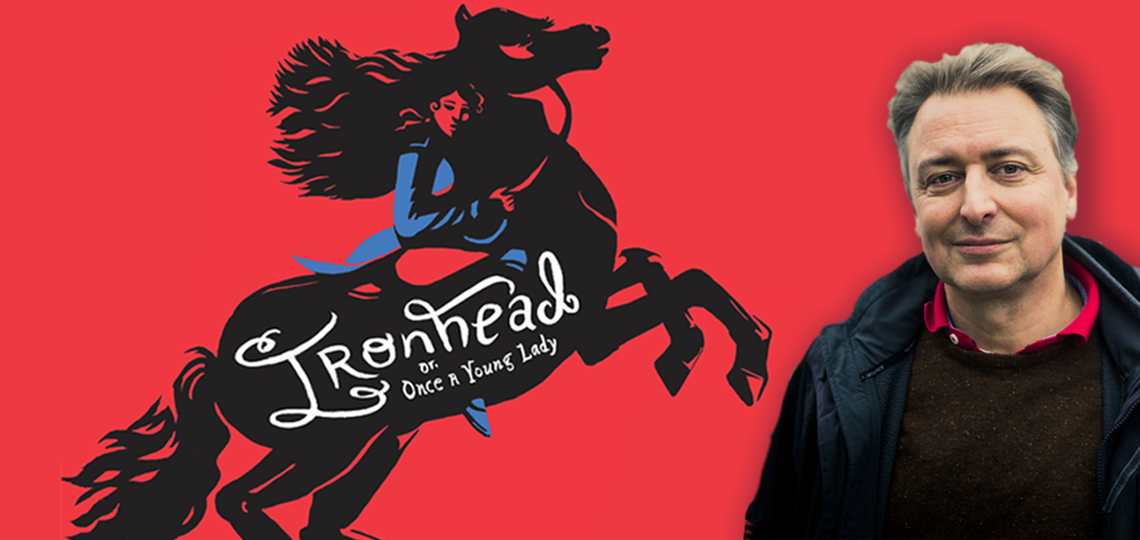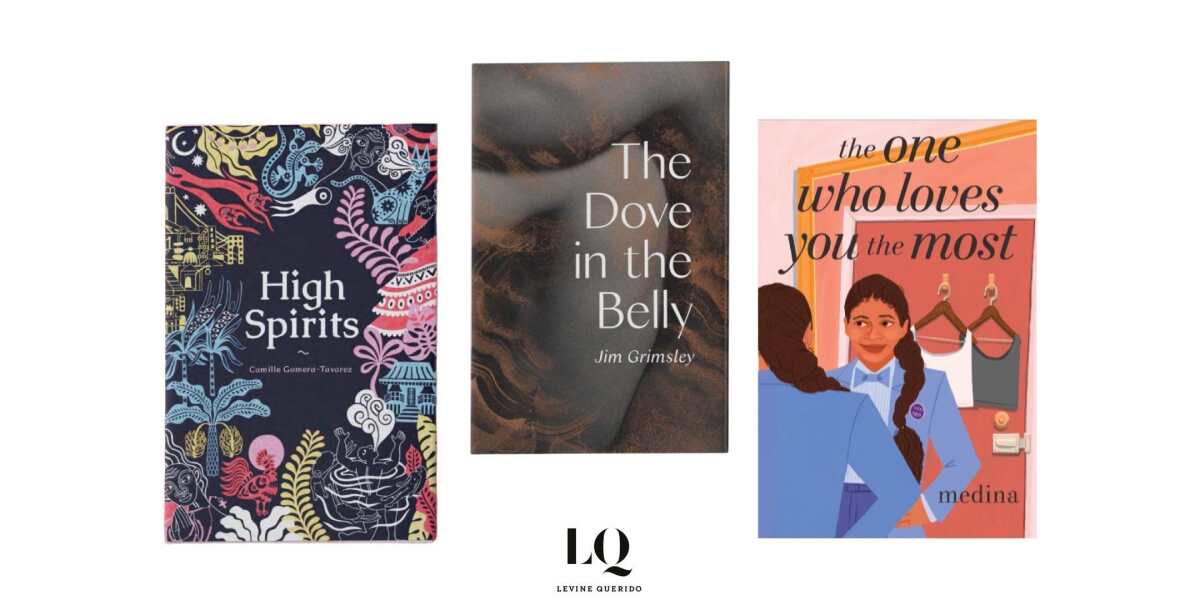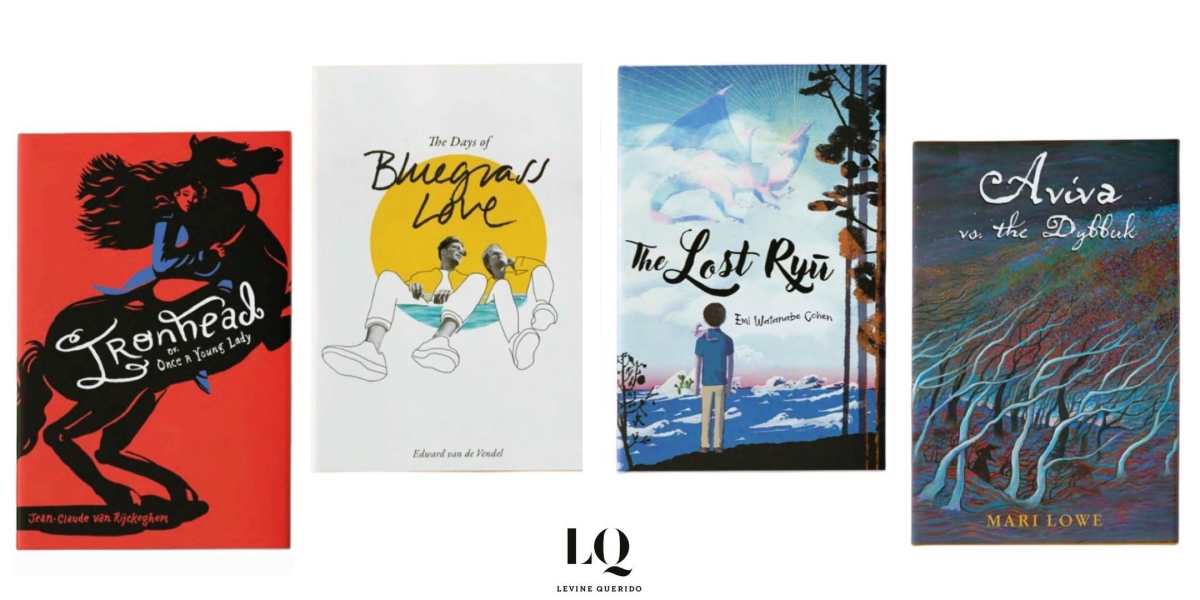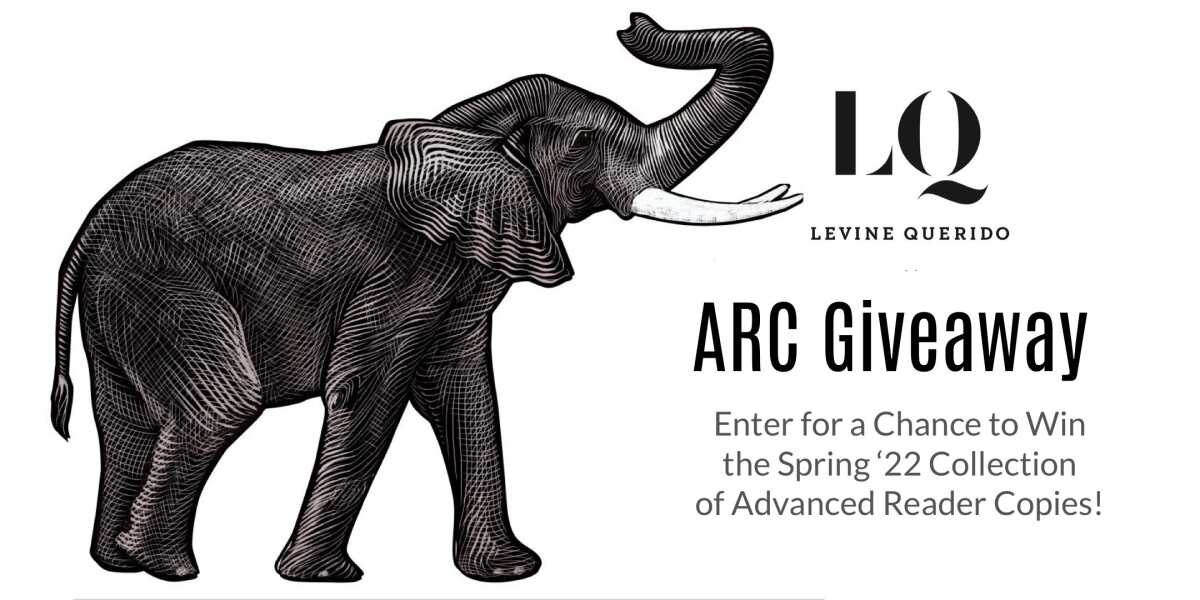Is History Mankind's Great Teacher?

Reviewer Danielle Ballantyne interviews Jean-Claude van Rijckeghem, Author of Ironhead, or, Once a Young Lady
Historical novels can open up windows to the past, but they can also give us new perspectives on the present. “There is nothing new under the sun” goes the old adage, adapted from a Biblical proverb and referenced by Shakespeare, Charles Darwin, Sir Arthur Conan Doyle, and countless others.
For his part, Jean-Claude van Rijckeghem sees history as “mankind’s greatest teacher,” and brought this approach to his latest young adult novel, Ironhead, or, Once a Young Lady. The novel follows Stance, a headstrong young woman frustrated by the restrictions of her time, as she assumes life as a man in order to join Napoleon’s army and escape her dire circumstances. Her brother, Pier, is sent to track her down, setting off a series of events neither could have anticipated.
We reached out to Jean-Claude with some questions about this daring novel; we hope you find his answers as enlightening as we did.
Ironhead is a period young adult novel set in a time frame that is not utilized much within the genre: the Napoleonic Wars. What drew you to use this period as your setting?
Well, I am not a historian, and when I started working on my novel, I didn’t know that much about the Napoleonic times. One of the pleasures of writing a historical novel is the first stage: the discovery of times past. It’s like a journey to an exotic place that you have heard stories about but don’t quite know. And when I travel there, mostly in my mind, by reading books, talking to historians, surfing the internet, or visiting ancient houses, the past unlocks some of its mysteries. At some point I get so enthusiastic that I want to tell a story set in the world I am discovering.
The Napoleonic era was a direct result of the French Revolution in 1789, which the great Charles Dickens described as ‘the best of times’ and ‘the worst of times.’ The period was indeed the best of times because the French people told the world they didn’t need kings or queens. They proclaimed that every citizen was equal and free. In doing so, they basically abolished the aristocracy that had ruled the nation since the Middle Ages. A book of law was written, the jury system for courts was invented, divorce was legalized, houses were numbered, etc. The French revolution abolished slavery too—Napoleon had a Black general, the father of writer Alexandre Dumas—even if that didn’t last. In short: it was the dawn of the modern age. Our age.
But it was also the worst of times as the nations of Europe tried to isolate and punish France for killing its monarchs and disturbing the order of things. This facilitated the rise of Napoleon, a military man of Italian descent who became the leader of France. In the two decades that followed, France was at war with the rest of Europe.
My novel is far from a history lesson, however. I’m giving hints and texture so that, I hope, my readers can sense and smell and imagine the early nineteenth century and understand the obstacles that my protagonists—Stance and Pier—face while they are having the adventure that will shape their lives. I tried not to explain too much about history. I wanted my readers’ minds and emotions to be very close to my characters. They came first.
I feel Ironhead is a great example of a young adult novel that’s not afraid to be honest with its audience, as the book covers a lot of dark, difficult themes: sexual violence; the lingering horrors of war; the restrictions of gender expectations and norms; leaving childhood behind before one is ready. What would you say to people who believe some of these topics are “inappropriate” for a young adult audience?
Well, I think it makes no sense to sugarcoat history. I would think that young adults appreciate a novel that does not hide the historical reality from them. I’ve tried to write about the past as I imagine it must have been, based on the research I did.
The topics in my book that you mention—sexual violence, war, restrictions of gender expectations or leaving childhood behind before one is ready—are still very relevant today. I guess that introducing those themes within the context of a historical novel makes them—perhaps—more appropriate for a young audience. The themes become more accessible as readers are comforted to know that this is a story that takes place in a distant time and that things are different today. Yet, the parallels are very much there. So, in a way, the past holds up a mirror for our lives today.
I would argue that ‘history’ is mankind’s great teacher. We need to understand the accomplishments of human beings and appreciate them as well as remember humanity’s failings and draw lessons from them. It’s discouraging to realize sometimes that history often ‘repeats’ itself and that we discard history’s lessons. The more humanity understands the past in all its colors and complexity, the better it can evolve.
Also, we are not so different from our ancestors. Just like us, they tried to make sense of their lives, they tried to be good at something, they wanted to love and be loved. Sometimes, they won. More often, they lost. It’s all very human.
Stance and Pier’s developing sibling relationship is one of the most compelling aspects of the novel: Pier’s childlike naivety grates on Stance after the harsh realities she’s been subjected to, while Pier perceives Stance’s stubbornness as childish in a different way. What inspired you to make this brother/sister relationship so central to the novel?
I’m not sure what exactly inspired me. When I started writing the novel, I realized that it wouldn’t do to just tell the story from Stance’s rebellious point of view. She needed a brother who was her direct opposite. She is as emphatically progressive as he is naively conservative. The novel is also the story of their small family: the father who is a bit delusional, the mother who has her feet firmly on the ground, the toothless grandmother and the youngest child who is sickly. In a way, I suppose there is some of me in Pier. He is anxious, he puts his foot in his mouth, he wants to be liked—much as I do.
I must say that I did not entirely foresee Stance and Pier’s evolution during the writing of the novel. I did not have the ending clearly in my head. Stance and Pier revealed themselves to me as I wrote their chapters. They were always on my mind, even when I wasn’t writing, and I grew fond of them. The brother/sister relationship is absolutely the heart of the book. I think the readers will understand how they feel about each other when they turn the final page. I was quite sad when I finished writing and I had to let Stance and Pier get on with their lives. When I reread the English translation (Kristen Gehrman did a great, great job), I was happy to meet them again.
Stance takes on the identity of a man to more freely move about society, ultimately joining the army, and expresses comfort in this masculine presentation; she also has relationships with women. Did you come across any difficulties in including sexual and gender fluidity in a historical setting? What would you say to authors and other media creators who erroneously argue such presentations are “historically inaccurate?”
Actually, it is historically accurate. I got the idea for my novel when I visited the fields of Waterloo, near Brussels. Waterloo was a huge battle that lasted for two days in June 1815. It was Napoleon’s final battle. He was defeated and afterwards, the victorious allies—Germans, English, Dutch—collected all the valuables and clothes from the dead. The victors were basically hunting for valuables amongst the tens of thousands of dead. An English volunteer, Charles Smith of the 95th Rifles, peeled the clothes of a dead French cavalry man, and, to his astonishment, he saw that it was a woman. He realized that this woman, armed with a heavy sabre, a plumed helmet and iron breastplate, charged the English guns on horseback…and she was killed. Smith noted that the woman was very young and had a beautiful face. She was one of three French women in uniform who perished in that battle.
Historians have come to believe that—in Napoleon’s army—quite a few women donned a man’s uniform. A handful of them have been identified, and their lives have been somewhat documented. Most, however, remained anonymous. Nobody ever found out who the dead woman in the cavalry uniform was or why she joined the army. Yet, one can imagine the ‘why.’ Putting on trousers, wearing a man’s head gear, concealing your assigned gender and throwing your weight around meant that your life was no longer someone else’s to decide upon. You did not have to answer to the whims of a father or a husband to be able to sustain yourself. In the United States, there are accounts of women who dressed as men during the Civil War. Back then, those women—today we might use the terms nonbinary or gender-fluid—were eager to prove that they were one of the boys. They exaggerated their manliness. They felt particularly at ease in female company and did not hesitate to flirt with the most beautiful woman in the room. They became self-confident, and they were no one’s servant. For each of them, it must have been an adventure.
What project are you turning your attention to next? Anything in progress you could share with us?
I’m currently writing a young adult novel in my native Dutch. Its title, Onheilsdochter,is somewhat difficult to translate. I suppose “Calamity’s Daughter” comes close. The story revolves around Yrsa, a Viking daughter in 870. She takes care of a Flemish nun—Sister Job—who is ransomed by her Viking clan. Though the two adolescents are fiercely different, they strike up a friendship and will need each other to escape Denmark. I researched and wrote it for most of the past two years. The novel in Dutch is due to come out in May 2022, and of course, I hope that it will have an English translation someday.
Danielle Ballantyne



